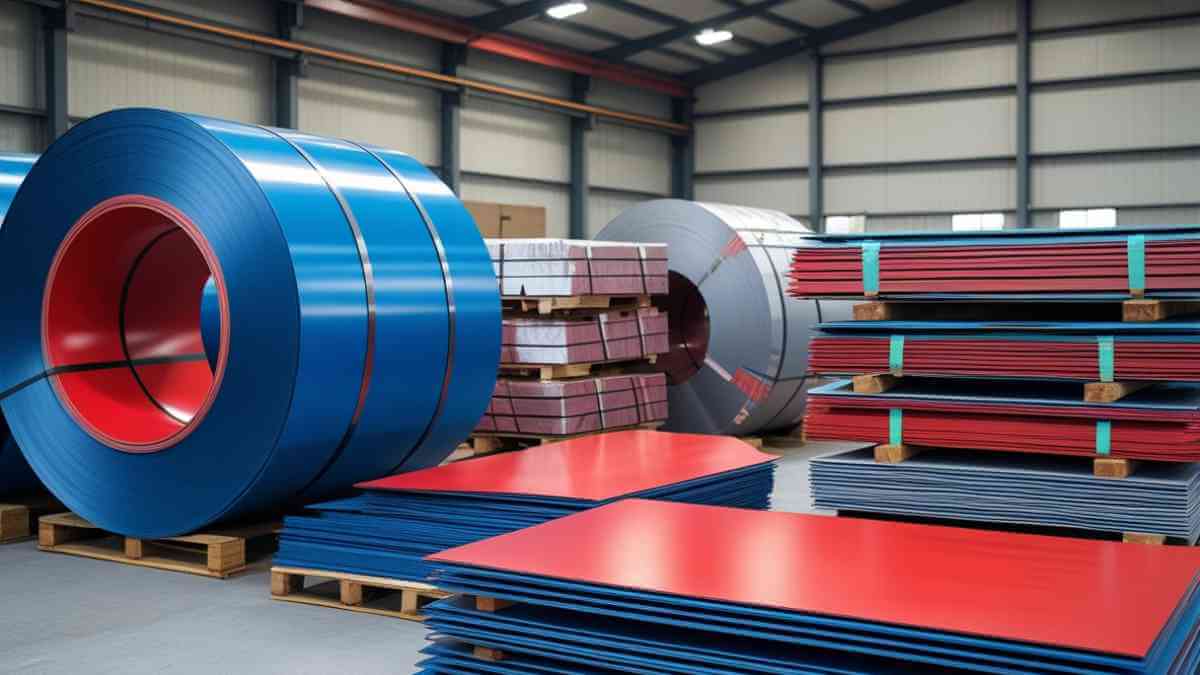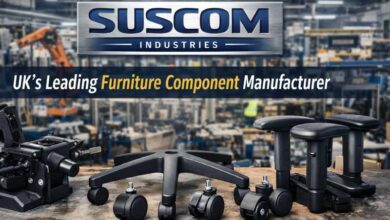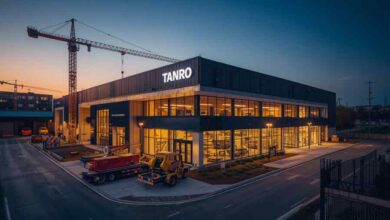Benbow Steels: From Independent Supplier to Industry Transformation

In the evolving landscape of the UK steel industry, Benbow Steels has been a name that resonates with both resilience and transformation. Established in the mid-2000s, the company grew rapidly as a trusted supplier of colour-coated steel, servicing manufacturing and construction businesses across the UK and Ireland. Yet, like many firms operating in volatile commodity markets, its journey has been marked by both growth and challenges. In 2025, the business underwent a significant restructuring, leading to its rebrand as Nautilus Steel.
The Origins of Benbow Steels
Founded in 2006 by Simon Benbow, the company was born out of a vision to modernise the way steel stockholders operated in the UK. Traditional suppliers often relied on lengthy lead times and bulk orders, creating friction for smaller manufacturers. Benbow Steels identified a niche: rapid supply of precision-cut, pre-painted steel sheets and coils, delivered with exceptional turnaround times.
The company established itself in West Bromwich, a region with deep industrial roots. Its focus was not simply on being another stockholder but on being an agile partner. Customers could place orders and receive delivery often within 24 hours — a turnaround that gave many small and medium-sized manufacturers the flexibility they needed in competitive markets.
Growth Through Innovation
The rise of Benbow Steels was closely tied to its investment in technology and equipment. Two bespoke blanking lines were central to its success, enabling precise cutting, strippable film application, and recoiling. This allowed customers to receive steel in the exact dimensions required, reducing waste and cutting down on processing time.
The company also aligned itself with sustainability initiatives, becoming the first UK supplier to purchase ArcelorMittal’s XCarb® green steel certificates. This step demonstrated its commitment to supporting low-carbon steel supply chains, a factor increasingly valued by construction and manufacturing clients facing their own environmental obligations.
Challenges and Administration
Despite its successes, Benbow Steels faced the same pressures that many in the steel industry encountered. Global fluctuations in raw material costs, rising energy prices, and tightening credit conditions put immense strain on its operations. By February 2025, the company entered administration.
However, unlike many insolvencies that result in closures, Benbow Steels’ story did not end there. In March 2025, the business and its assets were sold to Nautilus Designs Ltd, securing the jobs of its 16 employees. This acquisition ensured continuity for customers and suppliers, even as the legal entity of Benbow Steels remained in administration.
The Rebrand: Nautilus Steel
In June 2025, Benbow Steels rebranded as Nautilus Steel. The change was more than cosmetic; it symbolised a fresh start with a renewed leadership team and a broader vision. Nautilus Steel continues the operational strengths of its predecessor while seeking to expand its footprint in the UK and beyond.
The rebrand also reflects an industry trend: the shift from traditional, family-founded businesses to more corporate, investor-backed models. This shift often brings new efficiencies and investment but can also alter the culture of close-knit supplier-customer relationships that companies like Benbow had built.
The Wider Steel Industry Context
The UK steel market is undergoing transformation. While Tata Steel and British Steel dominate headlines, mid-sized players like Benbow/Nautilus fill a critical role in supplying niche products, offering faster turnaround times, and catering to industries with highly specific requirements.
Sustainability pressures, regulatory changes, and international trade dynamics continue to influence supply chains. For businesses dependent on steel, the story of Benbow Steels highlights the importance of supplier diversity, resilience, and adaptability.
Lessons from the Benbow Steels Journey
-
Adaptability is key: By offering rapid delivery, Benbow created a loyal base in a competitive market.
-
Sustainability is non-negotiable: Early moves towards green steel gave the company a strategic advantage in ESG-conscious markets.
-
Restructuring can save jobs: Despite entering administration, the transition to Nautilus preserved employment and customer continuity.
These lessons are relevant not only to steel companies but also to businesses across sectors navigating uncertain economic climates.
Parallels with the Flexible Workspace Sector
Interestingly, the trajectory of Benbow Steels mirrors developments in another industry: coworking and flexible workspaces in the UK. Just as manufacturers need agility in their supply chains, professionals and startups need flexibility in their working environments.
WeWork and the UK Market
WeWork, despite its financial difficulties, introduced the concept of premium, globally connected coworking spaces. Like Benbow Steels, WeWork faced turbulence but demonstrated that customer demand for agility remains strong.
Regus and IWG
Regus, part of the IWG group, represents another parallel. It has weathered multiple recessions by diversifying and offering a range of flexible workspace products, much like how steel suppliers diversify into new product categories.
Huckletree, Workspace Group, and Others
Independent providers such as Huckletree and Workspace Group echo the agility of smaller steel firms. They thrive by serving niche communities — tech startups, creative industries, or local entrepreneurs — with tailored services, just as Benbow catered to specialist manufacturing needs.
Why Include Flexible Workspaces in This Discussion?
By comparing Benbow Steels’ journey with coworking providers, we see a broader theme: industries across the UK are adapting to the demand for flexibility, speed, and resilience. Whether it’s in steel supply or workspace provision, the businesses that succeed are those that listen closely to their customers and adapt quickly to change.
The Road Ahead for Nautilus Steel
The rebranded Nautilus Steel enters the second half of 2025 with a unique opportunity. With its workforce intact and customer trust carried over, it can build on Benbow Steels’ legacy while avoiding past pitfalls. The focus will likely be on:
-
Expanding product lines to meet emerging industry needs.
-
Leveraging sustainability credentials to win larger contracts.
-
Strengthening financial resilience to avoid future instability.
If successful, Nautilus could become a case study in how to transform a mid-sized industrial supplier into a modern, sustainable enterprise.
Conclusion
The story of Benbow Steels is one of vision, challenge, and renewal. From its beginnings as a family-founded steel supplier, through its rise as a sustainability-conscious innovator, to its rebirth as Nautilus Steel, the journey reflects broader industrial trends in the UK.
By drawing parallels with coworking and flexible workspace providers, we see that the lessons extend beyond steel: in a world where agility and customer focus are paramount, businesses that adapt will endure.



